Lessons for Leaders: Caring for Clients in a Disaster
2 min read
Topic: entrepreneurship article leadership
In times of disaster, leadership is paramount. Whether it’s a natural catastrophe like wildfires or tornadoes or a large-scale crisis that disrupts lives and businesses, how leaders respond can define their organization’s future and their own reputation.
Having lived in Oklahoma, a state with frequent catastrophe claims, I’ve witnessed disasters of all kinds. These events destroy homes, disrupt businesses and irrevocably alter lives. In these moments, the most critical thing a leader can do is to demonstrate care. Genuine empathy isn’t just an option, it’s a necessity.
The Power of Presence and Authenticity
In a disaster, there’s no substitute for being there. When leaders show up, they reassure people that they’re not alone. Governors and Presidents rush to disaster zones for this very reason: to listen, comfort and offer a vision of hope. Business leaders should consider the same approach.
Take, for example, Governor Frank Keating, who led Oklahoma during the aftermath of the 1995 Oklahoma City bombing. His presence was constant, he was compassionate and lead with integrity. His authenticity allowed people to trust him in their time of need. Leadership isn’t about giving speeches or issuing statements from afar, it’s about showing up, listening to those who are hurting and offering tangible support.
People need leaders who genuinely care—not just in the moment, but for the long haul. Those leaders who are not naturally caring people will struggle to effectively help their constituents through a disaster.
Three Steps for Client Care in a Crisis
For professionals in the insurance industry and beyond, responding to a disaster requires quick, thoughtful action. Here are three steps to assist clients who are impacted by a disaster:
1. Reach Out Immediately: Don’t wait for clients to call you, be proactive. Contact clients in impacted areas, work to understand what they’re going through and offer your support.
2. Be a Resource Coordinator: Though a kind gesture, clients in a disaster will need more than sympathy. They need solutions. Help them navigate claims processes, secure resources for clean-up assistance or access to temporary financial aid. Acting as their trusted guide can make an overwhelming situation more manageable.
3. Follow Up Consistently: The real impact of a disaster-related claim often surfaces weeks, or even months later. Check-in with clients regularly to ensure they feel supported until they have fully recovered. This consistent presence separates good leaders from great ones.
Lessons from Failures
In some cases, the aftermath of a disaster will highlight leadership oversights or missteps that become cautionary tales. Leaders may find themselves unprepared, avoid responsibility and point fingers instead of providing solutions. Three critical lessons for business leaders include:
1. Plan Ahead: Contingency planning, even for unlikely disasters, ensures you’re ready to act when the unexpected happens. Planning allows leaders to ask questions and make adjustments for an organization’s worst-case scenarios.
2. Listen: Warnings often precede disasters. Ignoring them has proven to be a fatal mistake. Leaders should heed warnings of potential disastrous outcomes and seek out solutions before people, home and businesses are impacted.
3. Take Responsibility: Deflecting blame undermines trust and credibility. Leaders who own their mistakes earn respect, even in tough times.
Disasters are temporary, but the emotional and financial recovery takes time. Great leadership is about proving the promises you have made are genuine and that you’ll stand by your clients until their lives are whole again, during a disaster and beyond
Tony Caldwell
Tony Caldwell is a modern “renaissance man,” who is not only immensely successful in the field of insurance, but is also a writer, children’s advocate, mentor and even a licensed pilot.
Always keen on helping others make their dreams come true, Tony and his team have helped independent agents grow into more than 250 independent agencies. This has made OAA the number one ranked Strategic Master Agency of SIAA for the last 5 years, and one of Oklahoma's 25 Best Companies to Work for.
Tony loves to share his knowledge, insight and wisdom through his bestselling books as well as in free mediums including podcasts and blogs.
Tony and his family are members of Crossings Community Church, and he is very active in community initiatives: he’s chairman of It’s My Community Initiative, Inc., a nonprofit working with disadvantaged people in Oklahoma City; and chairman of the Oklahoma Board of Juvenile Affairs., and he has served through many other organizations including the Salvation Army, Last Frontier Council of the Boy Scouts of America, and the Rotary Club.
In his spare time, Tony enjoys time with his family. He’s also an active outdoorsman and instrument-rated commercial pilot.
Recent Posts
Entrepreneurship
Why Passion Projects Make Better Leaders
It is easy for business leaders to find themselves stuck with tunnel vision when seeking out...
Entrepreneurship
Ripple Effect: The Value in Mentors for Leaders
In business, leaders are always thinking ahead, solving problems and seeking out avenues for...

